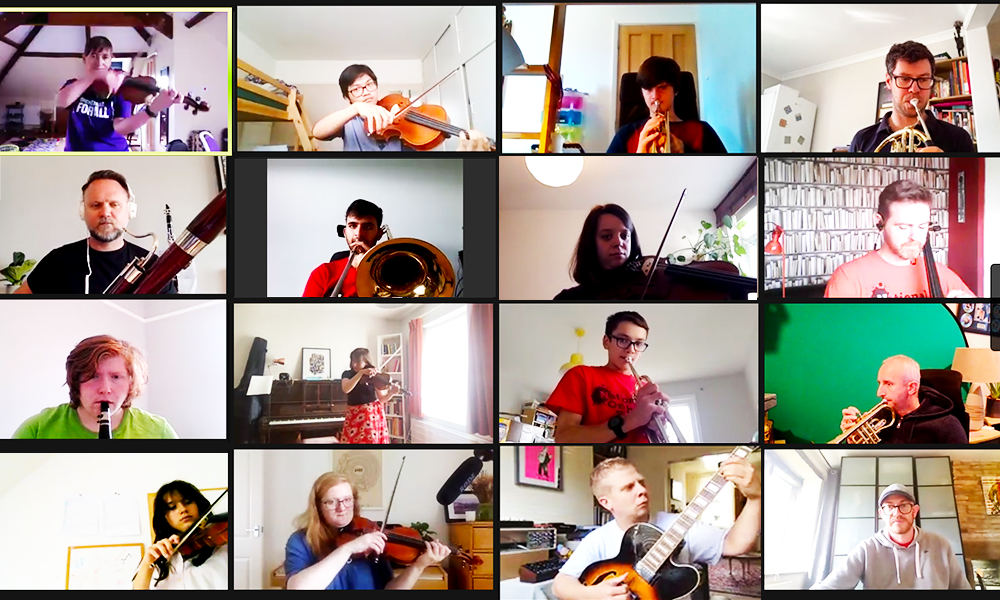The guitar virtuoso will be supporting young musicians in this year’s Modulo Programme, so we caught up with him to find out more...
Inspiring guitarist, vocalist, composer and improviser, Ralph Porrett, has been making waves on the music scene following his stellar live performance in the BBC Young Jazz Musician 2022 final last November.
Taking place at London’s prestigious Queen Elizabeth Hall, Ralph’s captivating show included an original suite of music, Ode to Arnheim, which he had written especially for house band, Nikki Yeoh’s Infinitum, who accompanied him throughout.
The 23-year-old Guildhall graduate has also collaborated and toured with the likes of saxophonist and MOBO Award winner, YolanDa Brown, pop singer-songwriter, Tom Rosenthal, City of Birmingham Symphony Orchestra and the National Youth Jazz Orchestra, among many others, and is due to release his highly-anticipated collection of EPs throughout 2023.
When he’s not busy pursuing his own passion for music, Ralph dedicates his time as a guitar tutor and arranger to support participants of Orchestras for All’s Modulo Programme, which kickstarts a vibrant culture of orchestral music-making in maintained schools across the UK and brings young musicians together to perform as one large-scale ensemble.
During a recent interview (watch video above), Ralph told us: “I’m really excited to be involved with Modulo again this year, with our dates taking place in March and July. I’ve been looking at the guitar parts already and re-orchestrating some of them to make them as fun, guitar-friendly and accessible as possible for all levels and abilities.”
Read more: OFA celebrates positive change for young musicians in latest impact report >
Pictured: Guitarist Ralph Porrett performs live at the BBC Young Jazz Musician 2022 final (BBC)
Ralph continued: “Guitar isn’t a traditional orchestral instrument – but participants of Modulo can expect to be playing some really fun music that does fit in to an orchestral ensemble. I think they’ll have a great time collaborating and music-making with some classical instruments that guitarists might not usually have the opportunity to play with.”
Learn more about the Modulo Programme >
Before teaming up with students from other schools at OFA’s Modulo Meets, individual Modulos – a group of up to 15 young people, aged 11-18 – are formed, which are totally inclusive and welcome players regardless of their musical ability, previous experience or chosen instrument, in a bid to break down barriers to music-making.
A recent Modulo participant said: “I feel more confident after this experience because I’ve played in front of a lot of people, so now I feel like I can do anything!”
Another commented: “Go to Modulo if you want to learn how to play a new instrument – but even if you already play one, it’ll still help you to build on your skills.”
All about that bass: Ralph supports a Modulo guitar sectional at the Royal Birmingham Conservatoire
Sharing top tips for new Modulo participants, Ralph said: “Collaborate with like-minded individuals in your section and make new friends. You’ll also play diverse repertoire at Modulo, which can present stylistic challenges and expose you to music that you might not necessarily listen to but have the opportunity to play.
“And finally, at the end of a Modulo day you’ll get to perform your work – that’s so important because you can be in your bedroom all day long practising your music to your heart’s content but actually, music is about giving and expressing these things that we’re feeling with others.”
Watch Modulo musicians in action at the Royal Northern College of Music >
Speaking out about the importance of diversity and inclusion, Ralph added: “When you have a network of people from different backgrounds, how amazing that can be. They might have different education, be different ages and listen to different music at home but when you throw them all in a room together, that’s when special things happen and the most original music-making can take place.
“The arts industries are usually a reflection of what’s happening culturally and art should drive the ideas and thoughts of wider society. It’s important that musical institutions think really seriously about diversity, equity, inclusion and accessibility – and that’s why it’s so brilliant that children can get involved with Orchestras for All because that’s their mission.”
To support young musicians on our Modulo programme, please donate today >







